Fleurs du Mal Magazine


Or see the index
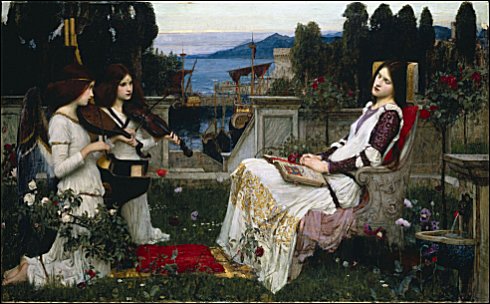
J. W. W A T E R H O U S E
(1849-1917)
Betoverd door vrouwen
Groninger Museum
14 december 2008 – 3 mei 2009
Het Groninger Museum presenteert van 14 december 2008 tot en met 3 mei 2009 de grootste overzichtstentoonstelling van werken van de wereldberoemde Britse kunstenaar John William Waterhouse (1849-1917) die ooit is georganiseerd. Vele kunstwerken komen uit Engeland, Ierland, Australië, Taiwan en Canada. De tentoonstelling toont schilderijen en tekeningen en wordt georganiseerd in samenwerking met de Royal Academy of Arts in Londen en het Montreal Museum of Fine Arts in Montreal.
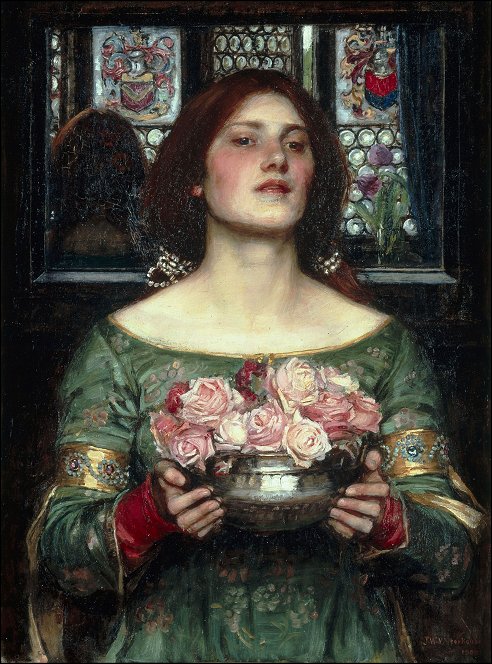
De internationale, reizende tentoonstelling J.W. Waterhouse (1849-1917). Schoonheid en Passie is de eerste grootschalige monografische expositie van het werk van Waterhouse sinds 1978. Het is bovendien de eerste tentoonstelling ooit, die de gehele carrière van Waterhouse zal onderzoeken en werken uit publieke en private collecties van over de hele wereld samen zal brengen.
De tentoonstelling toont het engagement van Waterhouse met hedendaagse onderwerpen, variërend van thema’s uit de Klassieke Oudheid en de Middeleeuwen tot spiritualiteit. Klassieke mythes, zoals geïnterpreteerd door Homerus en Ovidius, en een romantische fascinatie voor intense vrouwelijke passies, zoals die worden beschreven in de gedichten van John Keats, Alfred Tennyson en het werk van William Shakespeare, spelen een belangrijke rol binnen zijn oeuvre. Voorbeelden hiervan zijn de Lady of Shalott, Cleopatra, Ulysses and the Sirens en La Belle Dame Sans Merci.
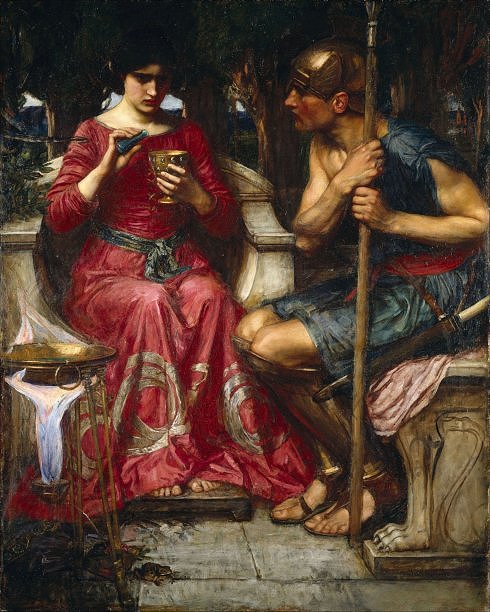
Hoewel de werken van J.W. Waterhouse door miljoenen mensen wereldwijd bewonderd worden, weet het publiek relatief weinig over de man zelf en zijn artistieke productie. De tentoonstelling in het Groninger Museum zal de meest beroemde werken van Waterhouse dan ook in de context van zijn gehele carrière plaatsen om aan te tonen waarom Waterhouse tot één van de meest belangrijke vertalers van klassieke en romantische tradities gerekend kan worden.
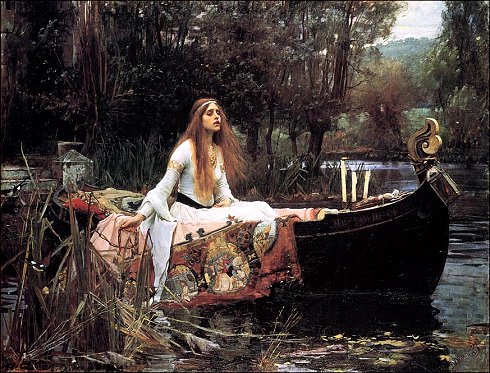
Tegenwoordig wordt Waterhouse vaak een ‘Moderne-Prerafaëliet’ genoemd, maar hij was ook een vertegenwoordiger van de nieuwe tijd en was zich volledig bewust van de spannende artistieke vernieuwingen in Parijs in de tweede helft van de negentiende eeuw. Hij voelde zich thuis in de betoverende wereld van mythen en sagen, maar heeft zich ook laten inspireren door poëzie en muziek en de lossere toon van het Frans impressionisme.
De passie van Waterhouse voor schoonheid leeft onmiskenbaar voort in de prachtige schilderijen en tekeningen die hij naliet en waarvan vele te zien zullen zijn in het Groninger Museum.
J.W. Waterhouse in Groninger Museum
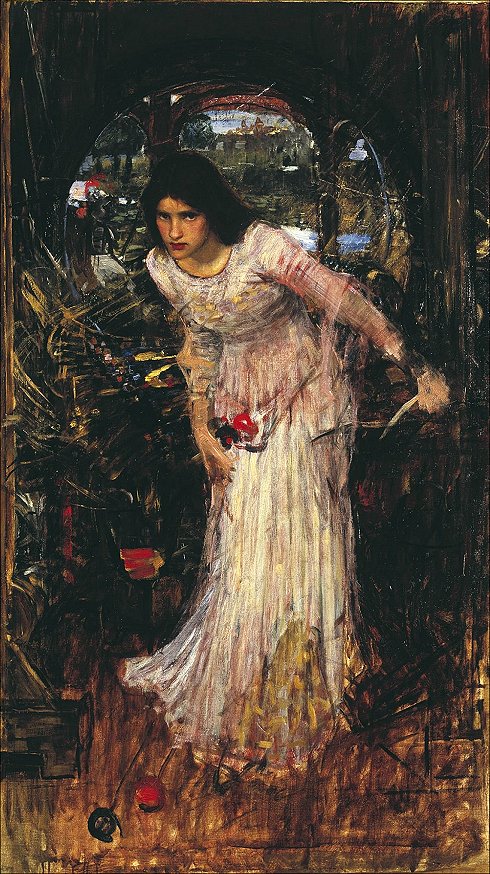
fleursdumal.nl magazine – magazine for art & literature
More in: *The Pre-Raphaelites Archive, Art & Literature News

R o b e r t B u r n s
(1759-1796)
S e v e n P o e m s
On Sensibility
Sensibility how charming,
Thou, my friend, canst truly tell:
But distress with horrors arming,
Thou host also known too well.
Fairest flower, behold the lily,
Blooming in the sunny ray:
Let the blast sweep o’er the valley,
See it prostrate on the clay.
Hear the woodlark charm the forest,
Telling o’er his little joys:
Hapless bird! a prey the surest,
To each pirate of the skies.
Dearly bought, the hidden treasure,
Finer feeling can bestow;
Chords that vibrate sweetest pleasure,
Thrill the deepest notes of woe.
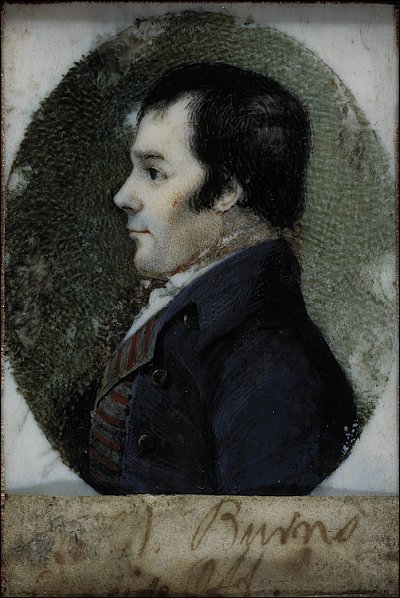
On a Friend
An honest man here lies at rest
As e’er God with his image blest!
The friend of man, the friend of truth;
The friend of age, and guide of youth;
Few hearts like his, with virtue warm’d,
Few heads with knowledge so inform’d:
If there’s another world, he lives in bliss;
If there is none, he made the best of this.
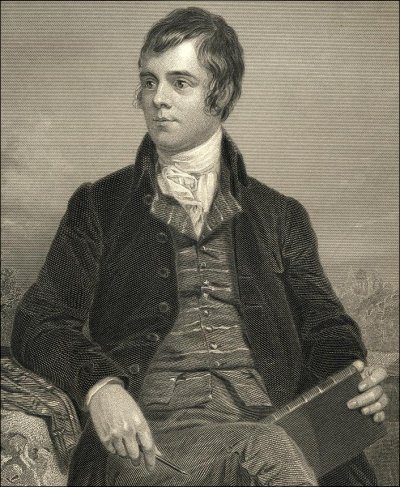
The Book-worm
Through and through the inspir’d leaves,
Ye maggots, make your windings;
But oh! respect his lordship’s taste,
And spare his golden bindings.
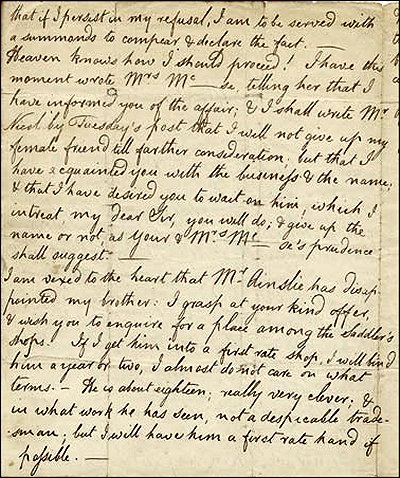
A Red, Red Rose
I
O, my luve’s like a red, red rose,
That’s newly sprung in June:
O, my luve’s like the melodie,
That’s sweetly play’d in tune.
II
As fair art thou, my bonnie lass,
So deep in luve am I:
And I will luve thee still, my dear,
‘Till a’ the seas gang dry.
III
‘Till a’ the seas gang dry, my dear,
And the rocks melt wi’ the sun:
I will luve thee still, my dear,
While the sands o’ life shall run.
IV
And fare thee weel, my only luve!
And fare thee weel a-while!
And I will come again, my luve,
Tho’ it were ten thousand mile.
.jpg)
Anna, Thy Charm
Anna, thy charms my bosom fire,
And waste my soul with care;
But ah! how bootless to admire,
When fated to despair!
Yet in thy presence, lovely fair,
To hope may be forgiv’n;
For sure ’twere impious to despair,
So much in sight of Heav’n.
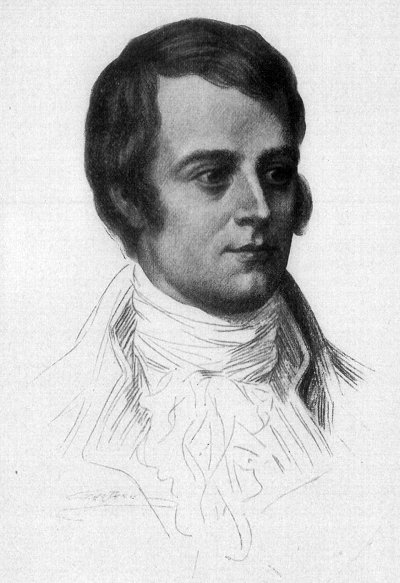
Gloomy December
I
Ance mair I hail thee, thou gloomy December!
Ance mair I hail thee wi’ sorrow and care:
Sad was the parting thou makes me remember,
Parting wi’ Nancy, oh! ne’er to meet mair.
Fond lovers’ parting is sweet painful pleasure,
Hope beaming mild on the soft parting hour;
But the dire feeling, O farewell for ever!
Is anguish unmingled, and agony pure.
II
Wild as the winter now tearing the forest,
‘Till the last leaf o’ the summer is flown,
Such is the tempest has shaken my bosom,
Since my last hope and last comfort is gone!
Still as I hail thee, thou gloomy December,
Still shall I hail thee wi’ sorrow and care;
For sad was the parting thou makes me remember,
Parting wi’ Nancy, oh! ne’er to meet mair.
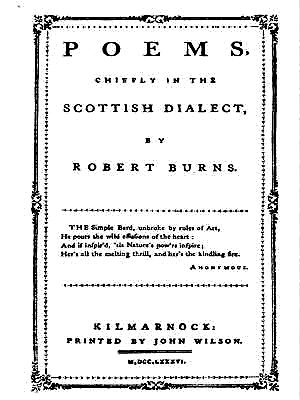
Here is The Glen
I
Here is the glen, and here the bower,
All underneath the birchen shade;
The village-bell has told the hour–
O what can stay my lovely maid?
II
‘Tis not Maria’s whispering call;
‘Tis but the balmy-breathing gale,
Mix’d with some warbler’s dying fall,
The dewy star of eve to hail.
III
It is Maria’s voice I hear!
So calls the woodlark in the grove,
His little, faithful mate to cheer,
At once ’tis music–and ’tis love.
IV
And art thou come? and art thou true?
O welcome, dear to love and me!
And let us all our vows renew
Along the flow’ry banks of Cree.
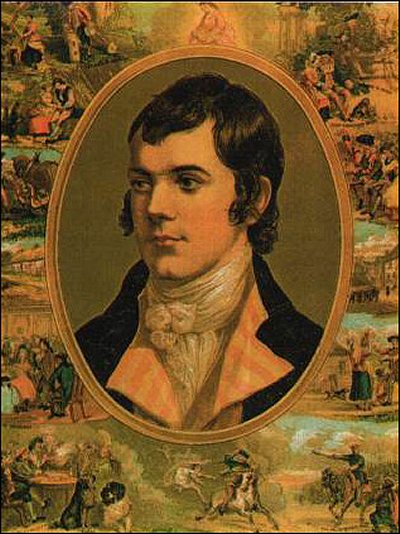
kemp=mag poetry magazine
More in: Burns, Robert


Monica Richter poetry:
Franz K. 1963
kemp=mag poetry magazine
More in: Monica Richter, Richter, Monica

Bettina von Arnim
(1785-1859)
Eros
Im Bett der Rose lag er eingeschlossen,
Im Wechselschimmer ihrer zarten Seiten,
Die taugebrochnen Strahlen schmeichelnd gleiten
Hinein zu ihm, von Geisterhauch umflossen.
Mich dünkt, in Schlummer waren hingegossen
Die reinen Glieder, durch des Dufts Verbreiten
Und durch der Biene Summen, die zuzeiten
Vorüberstreift an zitternden Geschossen.
Doch da beginnt mit einemmal zu schwellen
Der Blume Kelch! Ins Freie nun gehoben,
Erkenn ich ihn im Tagesglanz, dem hellen.
Es ist mein Auge vor ihm zugesunken,
Der mich so seltsam mit dem Blick umwoben,
In seinem Lichte lieg ich traume-trunken.
Poem of the week – December 7, 2008
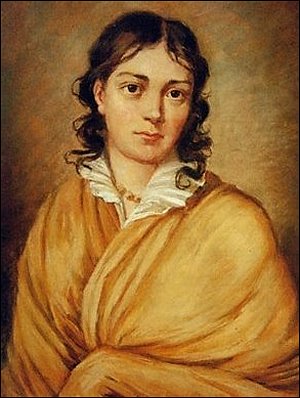
kemp=mag poetry magazine
More in: Archive A-B

John Keats
(London, 31 october 1795 – Rome, 23 february 1821)
La belle dame sans merci
Oh what can ail thee Knight at arms
Alone and palely loitering?
The sedge has withered from the Lake
And no birds sing.
Oh what can ail thee Knight at arms
So haggard, and so woe begone?
The Squirrel’s granary is full
And the harvest’s done.
I see a lily on thy brow
With anguish moist and fever dew,
And on thy cheeks a fading rose
Fast withereth too.
I met a Lady in the Meads
Full beautiful, a faery’s child,
Her hair was long, her foot was light
And her eyes were wild.
I made a garland for her head,
And bracelets too, and fragrant zone,
She look’d at me as she did love
And made sweet moan.
I set her on my pacing steed,
And nothing else saw all day long,
For sidelong would she bend and sing
A Faery’s song.
She found me roots of relish sweet,
And honey wild and manna dew,
And sure in language strange she said
I love thee true.
She took me to her elfin grot,
And there she wept and sigh’d full sore,
And there I shut her wild, wild eyes
With kisses four.
And there she lulled me asleep,
And there I dream’d, Ah! Woe betide!
The latest dream I ever dreamt
On the cold hill side.
I saw pale Kings, and Princes too,
Pale warriors, death pale were they all;
They cried, La belle dame sans merci,
Thee hath in thrall.
I saw their starv’d lips in the gloam
With horrid warning gaped wide,
And I awoke, and found me here
On the cold hill’s side.
And this is why I sojourn here
Alone and palely loitering;
Though the sedge is withered from the Lake
And no birds sing. . ..
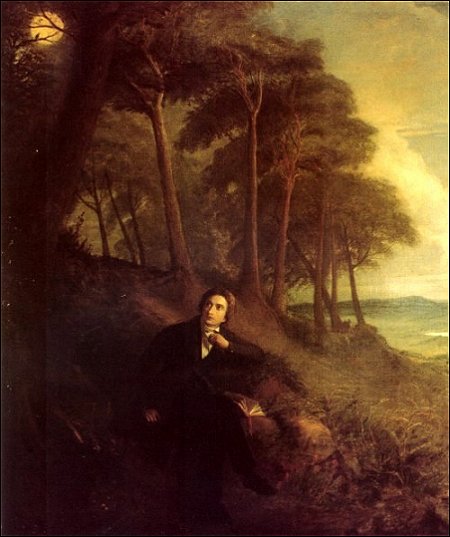

Ode to a nightingale
1
My heart aches, and a drowsy numbness pains
My sense, as though of hemlock I had drunk,
Or emptied some dull opiate to the drains
One minute past, and Lethe-wards had sunk:
‘Tis not through envy of thy happy lot,
But being too happy in thine happiness,–
That thou, light-winged Dryad of the trees,
In some melodious plot
Of beechen green, and shadows numberless,
Singest of summer in full-throated ease.
2
O, for a draught of vintage! that hath been
Cool’d a long age in the deep-delved earth,
Tasting of Flora and the country green,
Dance, and Provençal song, and sunburnt mirth!
O for a beaker full of the warm South,
Full of the true, the blushful Hippocrene,
With beaded bubbles winking at the brim,
And purple-stained mouth;
That I might drink, and leave the world unseen,
And with thee fade away into the forest dim:
3
Fade far away, dissolve, and quite forget
What thou among the leaves hast never known,
The weariness, the fever, and the fret
Here, where men sit and hear each other groan;
Where palsy shakes a few, sad, last gray hairs,
Where youth grows pale, and spectre-thin, and dies;
Where but to think is to be full of sorrow
And leaden-eyed despairs,
Where Beauty cannot keep her lustrous eyes,
Or new Love pine at them beyond to-morrow.
4
Away! away! for I will fly to thee,
Not charioted by Bacchus and his pards,
But on the viewless wings of Poesy,
Though the dull brain perplexes and retards:
Already with thee! tender is the night,
And haply the Queen-Moon is on her throne,
Cluster’d around by all her starry Fays;
But here there is no light,
Save what from heaven is with the breezes blown
Through verdurous glooms and winding mossy ways.
5
I cannot see what flowers are at my feet,
Nor what soft incense hangs upon the boughs,
But, in embalmed darkness, guess each sweet
Wherewith the seasonable month endows
The grass, the thicket, and the fruit-tree wild;
White hawthorn, and the pastoral eglantine;
Fast fading violets cover’d up in leaves;
And mid-May’s eldest child,
The coming musk-rose, full of dewy wine,
The murmurous haunt of flies on summer eves.
6
Darkling I listen; and, for many a time
I have been half in love with easeful Death,
Call’d him soft names in many a mused rhyme,
To take into the air my quiet breath;
Now more than ever seems it rich to die,
To cease upon the midnight with no pain,
While thou art pouring forth thy soul abroad
In such an ecstasy!
Still wouldst thou sing, and I have ears in vain–
To thy high requiem become a sod.
7
Thou wast not born for death, immortal Bird!
No hungry generations tread thee down;
The voice I hear this passing night was heard
In ancient days by emperor and clown:
Perhaps the self-same song that found a path
Through the sad heart of Ruth, when, sick for home,
She stood in tears amid the alien corn;
The same that oft-times hath
Charm’d magic casements, opening on the foam
Of perilous seas, in faery lands forlorn.
8
Forlorn! the very word is like a bell
To toll me back from thee to my sole self!
Adieu! the fancy cannot cheat so well
As she is fam’d to do, deceiving elf.
Adieu! adieu! thy plaintive anthem fades
Past the near meadows, over the still stream,
Up the hill-side; and now ’tis buried deep
In the next valley-glades:
Was it a vision, or a waking dream?
Fled is that music:–Do I wake or sleep?
Fancy
Ever let the Fancy roam,
Pleasure never is at home:
At a touch sweet Pleasure melteth,
Like to bubbles when rain pelteth;
Then let winged Fancy wander
Through the thought still spread beyond her:
Open wide the mind’s cage-door,
She’ll dart forth, and cloudward soar.
O sweet Fancy! let her loose;
Summer’s joys are spoilt by use,
And the enjoying of the Spring
Fades as does its blossoming;
Autumn’s red-lipp’d fruitage too,
Blushing through the mist and dew,
Cloys with tasting: What do then?
Sit thee by the ingle, when
The sear faggot blazes bright,
Spirit of a winter’s night;
When the soundless earth is muffled,
And the caked snow is shuffled
From the ploughboy’s heavy shoon;
When the Night doth meet the Noon
In a dark conspiracy
To banish Even from her sky.
Sit thee there, and send abroad,
With a mind self-overaw’d,
Fancy, high-commission’d:–send her!
She has vassals to attend her:
She will bring, in spite of frost,
Beauties that the earth hath lost;
She will bring thee, all together,
All delights of summer weather;
All the buds and bells of May,
From dewy sward or thorny spray
All the heaped Autumn’s wealth,
With a still, mysterious stealth:
She will mix these pleasures up
Like three fit wines in a cup,
And thou shalt quaff it:–thou shalt hear
Distant harvest-carols clear;
Rustle of the reaped corn;
Sweet birds antheming the morn:
And, in the same moment–hark!
‘Tis the early April lark,
Or the rooks, with busy caw,
Foraging for sticks and straw.
Thou shalt, at one glance, behold
The daisy and the marigold;
White-plum’d lilies, and the first
Hedge-grown primrose that hath burst;
Shaded hyacinth, alway
Sapphire queen of the mid-May;
And every leaf, and every flower
Pearled with the self-same shower.
Thou shalt see the field-mouse peep
Meagre from its celled sleep;
And the snake all winter-thin
Cast on sunny bank its skin;
Freckled nest-eggs thou shalt see
Hatching in the hawthorn-tree,
When the hen-bird’s wing doth rest
Quiet on her mossy nest;
Then the hurry and alarm
When the bee-hive casts its swarm;
Acorns ripe down-pattering,
While the autumn breezes sing.
Oh, sweet Fancy! let her loose;
Every thing is spoilt by use:
Where’s the cheek that doth not fade,
Too much gaz’d at? Where’s the maid
Whose lip mature is ever new?
Where’s the eye, however blue,
Doth not weary? Where’s the face
One would meet in every place?
Where’s the voice, however soft,
One would hear so very oft?
At a touch sweet Pleasure melteth
Like to bubbles when rain pelteth.
Let, then, winged Fancy find
Thee a mistress to thy mind:
Dulcet-eyed as Ceres’ daughter,
Ere the God of Torment taught her
How to frown and how to chide;
With a waist and with a side
White as Hebe’s, when her zone
Slipt its golden clasp, and down
Fell her kirtle to her feet,
While she held the goblet sweet,
And Jove grew languid.–Break the mesh
Of the Fancy’s silken leash;
Quickly break her prison-string
And such joys as these she’ll bring.–
Let the winged Fancy roam
Pleasure never is at home.

Lines on The Mermaid Tavern
Souls of Poets dead and gone,
What Elysium have ye known,
Happy field or mossy cavern,
Choicer than the Mermaid Tavern?
Have ye tippled drink more fine
Than mine host’s Canary wine?
Or are fruits of Paradise
Sweeter than those dainty pies
Of venison? O generous food!
Drest as though bold Robin Hood
Would, with his maid Marian,
Sup and bowse from horn and can.
I have heard that on a day
Mine host’s sign-board flew away,
Nobody knew whither, till
An astrologer’s old quill
To a sheepskin gave the story,
Said he saw you in your glory,
Underneath a new old-sign
Sipping beverage divine,
And pledging with contented smack
The Mermaid in the Zodiac.
Souls of Poets dead and gone,
What Elysium have ye known,
Happy field or mossy cavern,
Choicer than the Mermaid Tavern?

Robin Hood
To a friend
No! those days are gone away,
And their hours are old and gray,
And their minutes buried all
Under the down-trodden pall
Of the leaves of many years:
Many times have winter’s shears,
Frozen North, and chilling East,
Sounded tempests to the feast
Of the forest’s whispering fleeces,
Since men knew nor rent nor leases.
No, the bugle sounds no more,
And the twanging bow no more;
Silent is the ivory shrill
Past the heath and up the hill;
There is no mid-forest laugh,
Where lone Echo gives the half
To some wight, amaz’d to hear
Jesting, deep in forest drear.
On the fairest time of June
You may go, with sun or moon,
Or the seven stars to light you,
Or the polar ray to right you;
But you never may behold
Little John, or Robin bold;
Never one, of all the clan,
Thrumming on an empty can
Some old hunting ditty, while
He doth his green way beguile
To fair hostess Merriment,
Down beside the pasture Trent;
For he left the merry tale
Messenger for spicy ale.
Gone, the merry morris din;
Gone, the song of Gamelyn;
Gone, the tough-belted outlaw
Idling in the “grenè shawe;”
All are gone away and past!
And if Robin should be cast
Sudden from his turfed grave,
And if Marian should have
Once again her forest days,
She would weep, and he would craze:
He would swear, for all his oaks,
Fall’n beneath the dockyard strokes,
Have rotted on the briny seas;
She would weep that her wild bees
Sang not to her–strange! that honey
Can’t be got without hard money!
So it is: yet let us sing,
Honour to the old bow-string!
Honour to the bugle-horn!
Honour to the woods unshorn!
Honour to the Lincoln green!
Honour to the archer keen!
Honour to tight little John,
And the horse he rode upon!
Honour to bold Robin Hood,
Sleeping in the underwood!
Honour to maid Marian,
And to all the Sherwood-clan!
Though their days have hurried by
Let us two a burden try.
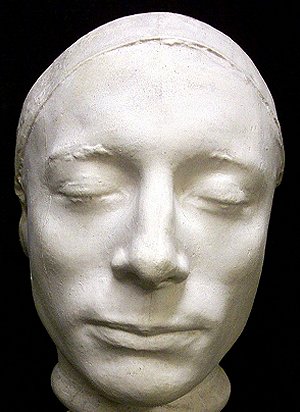
Ode on melancholy
1
No, no, go not to Lethe, neither twist
Wolf’s-bane, tight-rooted, for its poisonous wine;
Nor suffer thy pale forehead to be kiss’d
By nightshade, ruby grape of Proserpine;
Make not your rosary of yew-berries,
Nor let the beetle, nor the death-moth be
Your mournful Psyche, nor the downy owl
A partner in your sorrow’s mysteries;
For shade to shade will come too drowsily,
And drown the wakeful anguish of the soul.
2
But when the melancholy fit shall fall
Sudden from heaven like a weeping cloud,
That fosters the droop-headed flowers all,
And hides the green hill in an April shroud;
Then glut thy sorrow on a morning rose,
Or on the rainbow of the salt sand-wave,
Or on the wealth of globed peonies;
Or if thy mistress some rich anger shows,
Emprison her soft hand, and let her rave,
And feed deep, deep upon her peerless eyes.
3
She dwells with Beauty–Beauty that must die;
And Joy, whose hand is ever at his lips
Bidding adieu; and aching Pleasure nigh,
Turning to poison while the bee-mouth sips:
Ay, in the very temple of Delight
Veil’d Melancholy has her sovran shrine,
Though seen of none save him whose strenuous tongue
Can burst Joy’s grape against his palate fine;
His soul shall taste the sadness of her might,
And be among her cloudy trophies hung.
John Keats: La belle dame sans merci & other poems
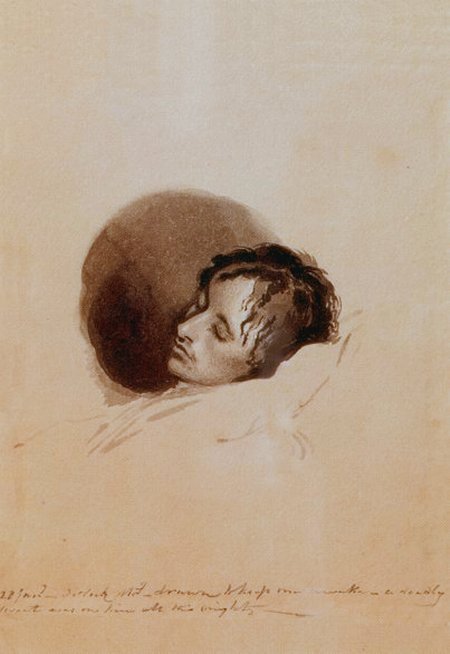
fleursdumal.nl magazine
magazine for art & literature
More in: John Keats, Keats, John
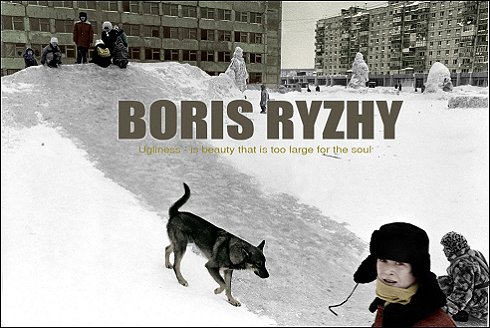
B O R I S R Y Z H Y
(1974-2001)
Poëzie over liefde en dood
Aliona van der Horst ontving tijdens de IDFA de Zilveren Wolf Award voor Boris Ryzhy, over de vroeggestorven Russische dichter Boris Ryzhy en Ekaterinburg, de grauwe industriestad die veel invloed had op zijn leven en werk.
Juryvoorzitter Thomas White zei dat, “hoewel geen van de juryleden vooraf bekend was met de dichter, van der Horst erin is geslaagd de kijker mee te nemen in zijn wereld en tegelijkertijd een blik wordt gegund op de Russische ziel”. De Zilveren Wolf bestaat uit € 10.000, beschikbaar gesteld door de NPS.
‘Al mijn gedichten gaan over liefde en dood, er zijn geen andere thema’s’ –schreef Boris Ryzhy, de piepjonge Russische deelnemer aan Poetry International Rotterdam van 2000. ‘Maar het is een dom cliché dat een dichter een persoonlijke tragedie moet hebben. Ik ben zielsgelukkig met mijn jeugdliefde Irina en mijn zoon.’
Een jaar later, in 2001, zal deze charmante en bewonderde dichter-hooligan zich ophangen. Hij werd 26 jaar. Regisseur Aliona van der Horst en cameravrouw Maasja Ooms reisden af naar de ijzige industriestad Jekaterinburg, op de grens van Siberië, om de sfeer van zijn gedichten te vangen en het raadsel van zijn dood te ontsluieren. Kwam het door de tijd waarin hij leefde? Kwam het de buurt waarin hij opgroeide?
Het is een film geworden vol intense blikken, industriële sferen en tragi-komische ontmoetingen met buurtbewoners van de Staalschrootwijk, de criminele arbeiderswijk waar Boris opgroeide en die hij de goudmijn voor zijn poëzie noemde. Een lelijke, harde wereld die door zijn gedichten wonderschoon wordt. Maar het is ook monument voor zijn tijdgenoten: de verloren generatie van de Perestrojka-jaren.
In het Westen wordt de Perestrojka nog steeds geassocieerd met democratie en persvrijheid, maar in buurten als de Staalschrootwijk leek het meer op een burgeroorlog, waar gangsters van allerlei slag elkaar uitmoordden.’ Wij zijn een generatie van bodyguards’ zegt zijn vrouw Irina op de besneeuwde begraafplaats. De gezichten van Boris’ klasgenoten staan daar in zwart marmer gebeiteld.
Zoon Artjom, 7 jaar toen zijn vader stierf, inmiddels 14, moet zich staande zien te houden in het harde leven van zijn stad. Gelukkig kan hij goed vechten en kent hij de wetten van de straat, net als zijn vader. Maar lukt het hem zijn vaders dood te begrijpen?
Meer informatie over de dichter en de film op de website:

fleursdumal.nl magazine
2 december 2008
More in: Art & Literature News, AUDIO, CINEMA, RADIO & TV, Ryzhy, Boris
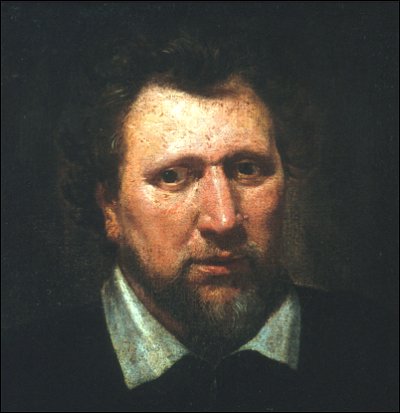
.jpg)
B e n J o n s o n
(1572-1637)
To the memory of
my beloved master
William Shakespeare,
and what he hath left us
To draw no envy, Shakspeare, on thy name,
Am I thus ample to thy book and fame;
While I confess thy writings to be such,
As neither man, nor muse can praise too much.
’Tis true, and all men’s suffrage. But these ways
Were not the paths I meant unto thy praise;
For silliest ignorance on these may light,
Which, when it sounds at best, but echoes right;
Or blind affection, which doth ne’er advance
The truth, but gropes, and urgeth all by chance;
Or crafty malice might pretend this praise,
And think to ruin, where it seemed to raise.
These are, as some infamous bawd, or whore,
Should praise a matron; what would hurt her more?
But thou art proof against them, and, indeed,
Above the ill-fortune of them, or the need.
I, therefore, will begin: Soul of the age!
The applause! delight! and wonder of our stage!
My Shakspeare rise! I will not lodge thee by
Chaucer, or Spenser, or bid Beaumont lie
A little further off, to make thee room:
Thou art a monument without a tomb,
And art alive still, while thy book doth live
And we have wits to read, and praise to give.
That I not mix thee so, my brain excuses,
I mean with great, but disproportioned Muses;
For if I thought my judgment were of years,
I should commit thee surely with thy peers,
And tell how far thou didst our Lily outshine,
Or sporting Kyd, or Marlow’s mighty line.
And though thou hadst small Latin and less Greek,
From thence to honour thee, I will not seek
For names: but call forth thundering Eschylus,
Euripides, and Sophocles to us,
Pacuvius, Accius, him of Cordoua dead,
To live again, to hear thy buskin tread,
And shake a stage; or, when thy socks were on,
Leave thee alone for the comparison
Of all that insolent Greece, or haughty Rome
Sent forth, or since did from their ashes come.
Triumph, my Britain, thou hast one to show,
To whom all scenes of Europe homage owe.
He was not of an age, but for all time!
And all the Muses still were in their prime,
When, like Apollo, he came forth to warm
Our ears, or like a Mercury to charm!
Nature herself was proud of his designs,
And joyed to wear the dressing of his lines!
Which were so richly spun, and woven so fit,
As, since, she will vouchsafe no other wit.
The merry Greek, tart Aristophanes,
Neat Terence, witty Plautus, now not please;
But antiquated and deserted lie,
As they were not of nature’s family.
Yet must I not give nature all; thy art,
My gentle Shakspeare, must enjoy a part.
For though the poet’s matter nature be,
His heart doth give the fashion: and, that he
Who casts to write a living line, must sweat,
(Such as thine are) and strike the second heat
Upon the Muse’s anvil; turn the same,
And himself with it, that he thinks to frame;
Or for the laurel, he may gain a scorn;
For a good poet’s made, as well as born.
And such wert thou! Look how the father’s face
Lives in his issue, even so the race
Of Shakspeare’s mind and manners brightly shines
In his well-turnèd, and true filèd lines;
In each of which he seems to shake a lance,
As brandished at the eyes of ignorance.
Sweet Swan of Avon! what a sight it were
To see thee in our water yet appear,
And make those flights upon the banks of Thames,
That so did take Eliza, and our James!
But stay, I see thee in the hemisphere
Advanced, and made a constellation there!
Shine forth, thou star of poets, and with rage,
Or influence, chide, or cheer the drooping stage,
Which, since thy flight from hence, hath mourned like night,
And despairs day, but for thy volume’s light.
Poem of the week – November 30, 2008
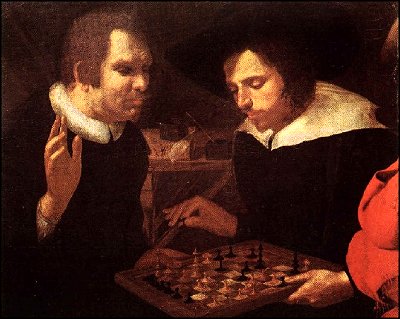
kemp=mag poetry magazine
More in: Archive I-J, Shakespeare, William
![]()
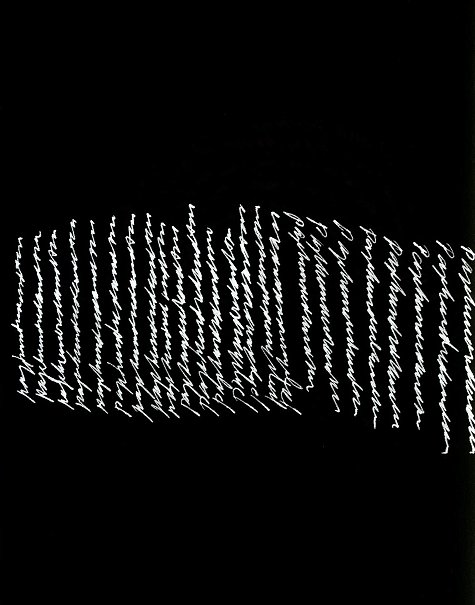
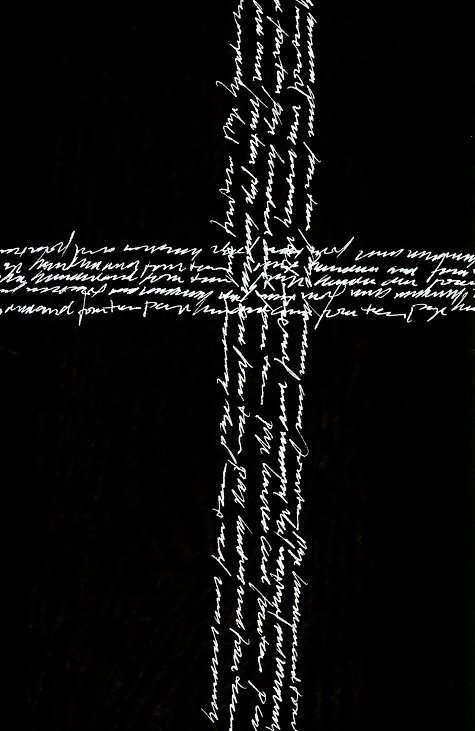
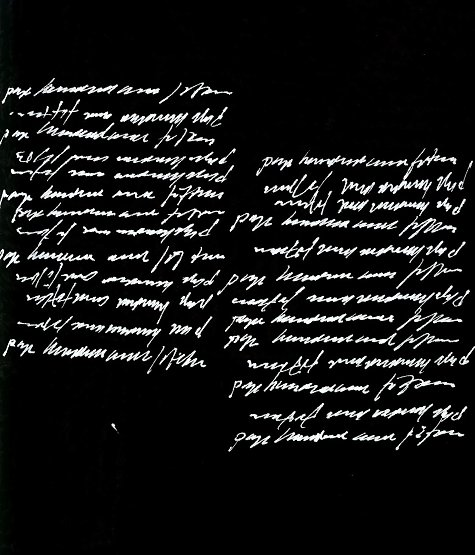
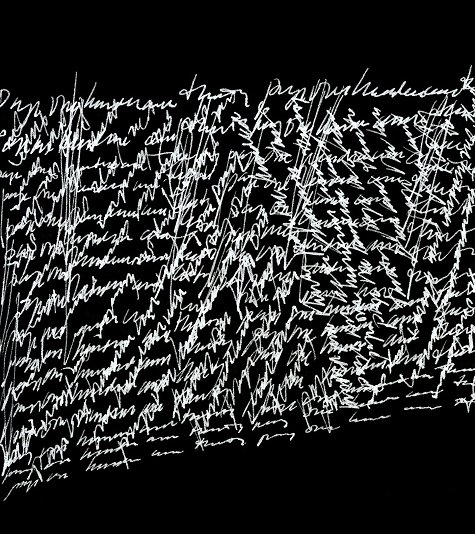

Museum of Lost Concepts
Disclosure 16-20
(1968-2008)
jef van kempen © fleursdumal.nl magazine
More in: *Concrete + Visual Poetry K-O, Conceptual writing, FLUXUS LEGACY, Kempen, Jef van, Visual & Concrete Poetry, ZERO art
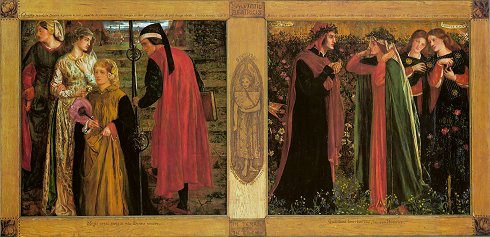
D a n t e G a b r i e l R o s s e t t i
(1828-1882)
S e v e n P o e m s
Insomnia
Thin are the night-skirts left behind
By daybreak hours that onward creep,
And thin, alas! the shred of sleep
That wavers with the spirit’s wind:
But in half-dreams that shift and roll
And still remember and forget,
My soul this hour has drawn your soul
A little nearer yet.
Our lives, most dear, are never near,
Our thoughts are never far apart,
Though all that draws us heart to heart
Seems fainter now and now more clear.
To-night Love claims his full control,
And with desire and with regret
My soul this hour has drawn your soul
A little nearer yet.
Is there a home where heavy earth
Melts to bright air that breathes no pain,
Where water leaves no thirst again
And springing fire is Love’s new birth?
If faith long bound to one true goal
May there at length its hope beget,
My soul that hour shall draw your soul
For ever nearer yet.
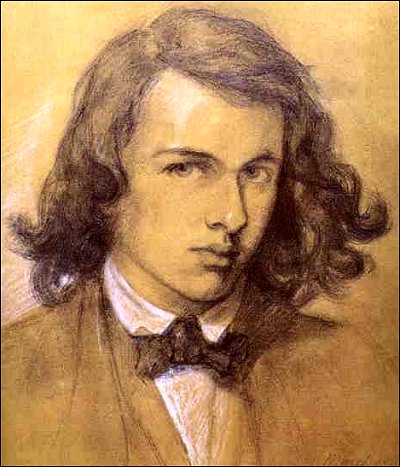
The Portrait
This is her picture as she was:
It seems a thing to wonder on,
As though mine image in the glass
Should tarry when myself am gone.
I gaze until she seems to stir,–
Until mine eyes almost aver
That now, even now, the sweet lips part
To breathe the words of the sweet heart:–
And yet the earth is over her.
Alas! even such the thin-drawn ray
That makes the prison-depths more rude,–
The drip of water night and day
Giving a tongue to solitude.
Yet only this, of love’s whole prize,
Remains; save what in mournful guise
Takes counsel with my soul alone,–
Save what is secret and unknown,
Below the earth, above the skies.
In painting her I shrin’d her face
Mid mystic trees, where light falls in
Hardly at all; a covert place
Where you might think to find a din
Of doubtful talk, and a live flame
Wandering, and many a shape whose name
Not itself knoweth, and old dew,
And your own footsteps meeting you,
And all things going as they came.
A deep dim wood; and there she stands
As in that wood that day: for so
Was the still movement of her hands
And such the pure line’s gracious flow.
And passing fair the type must seem,
Unknown the presence and the dream.
‘Tis she: though of herself, alas!
Less than her shadow on the grass
Or than her image in the stream.
That day we met there, I and she
One with the other all alone;
And we were blithe; yet memory
Saddens those hours, as when the moon
Looks upon daylight. And with her
I stoop’d to drink the spring-water,
Athirst where other waters sprang;
And where the echo is, she sang,–
My soul another echo there.
But when that hour my soul won strength
For words whose silence wastes and kills,
Dull raindrops smote us, and at length
Thunder’d the heat within the hills.
That eve I spoke those words again
Beside the pelted window-pane;
And there she hearken’d what I said,
With under-glances that survey’d
The empty pastures blind with rain.
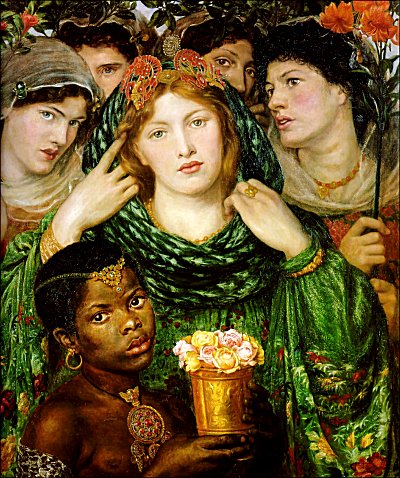
Next day the memories of these things,
Like leaves through which a bird has flown,
Still vibrated with Love’s warm wings;
Till I must make them all my own
And paint this picture. So, ‘twixt ease
Of talk and sweet long silences,
She stood among the plants in bloom
At windows of a summer room,
To feign the shadow of the trees.
And as I wrought, while all above
And all around was fragrant air,
In the sick burthen of my love
It seem’d each sun-thrill’d blossom there
Beat like a heart among the leaves.
O heart that never beats nor heaves,
In that one darkness lying still,
What now to thee my love’s great will
Or the fine web the sunshine weaves?
For now doth daylight disavow
Those days,–nought left to see or hear.
Only in solemn whispers now
At night-time these things reach mine ear;
When the leaf-shadows at a breath
Shrink in the road, and all the heath,
Forest and water, far and wide,
In limpid starlight glorified,
Lie like the mystery of death.
Last night at last I could have slept,
And yet delay’d my sleep till dawn,
Still wandering. Then it was I wept:
For unawares I came upon
Those glades where once she walk’d with me:
And as I stood there suddenly,
All wan with traversing the night,
Upon the desolate verge of light
Yearn’d loud the iron-bosom’d sea.
Even so, where Heaven holds breath and hears
The beating heart of Love’s own breast,–
Where round the secret of all spheres
All angels lay their wings to rest,–
How shall my soul stand rapt and aw’d,
When, by the new birth borne abroad
Throughout the music of the suns,
It enters in her soul at once
And knows the silence there for God!
Here with her face doth memory sit
Meanwhile, and wait the day’s decline,
Till other eyes shall look from it,
Eyes of the spirit’s Palestine,
Even than the old gaze tenderer:
While hopes and aims long lost with her
Stand round her image side by side,
Like tombs of pilgrims that have died
About the Holy Sepulchre.
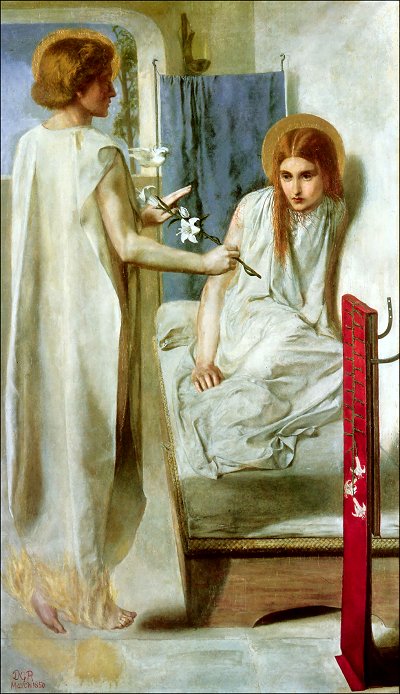
The Kiss
What smouldering senses in death’s sick delay
Or seizure of malign vicissitude
Can rob this body of honour, or denude
This soul of wedding-raiment worn to-day?
For lo! even now my lady’s lips did play
With these my lips such consonant interlude
As laurelled Orpheus longed for when he wooed
The half-drawn hungering face with that last lay.
I was a child beneath her touch, — a man
When breast to breast we clung, even I and she, —
A spirit when her spirit looked through me, —
A god when all our life-breath met to fan
Our life-blood, till love’s emulous ardours ran,
Fire within fire, desire in deity.
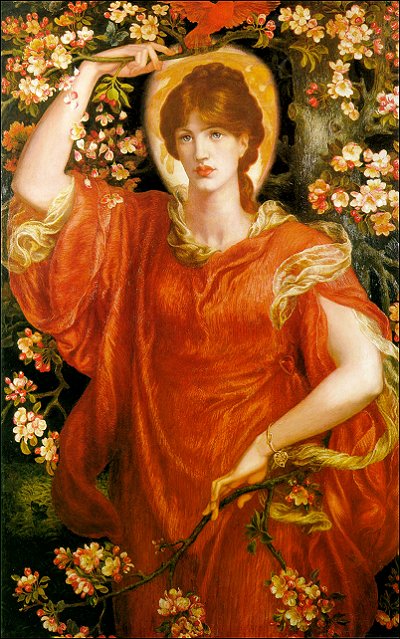
Through Death To Love
Like labour-laden moonclouds faint to flee
From winds that sweep the winter-bitten wold,–
Like multiform circumfluence manifold
Of night’s flood-tide,–like terrors that agree
Of hoarse-tongued fire and inarticulate sea,–
Even such, within some glass dimm’d by our breath,
Our hearts discern wild images of Death,
Shadows and shoals that edge eternity.
Howbeit athwart Death’s imminent shade doth soar
One Power, than flow of stream or flight of dove
Sweeter to glide around, to brood above.
Tell me, my heart,–what angel-greeted door
Or threshold of wing-winnow’d threshing-floor
Hath guest fire-fledg’d as thine, whose lord is Love?
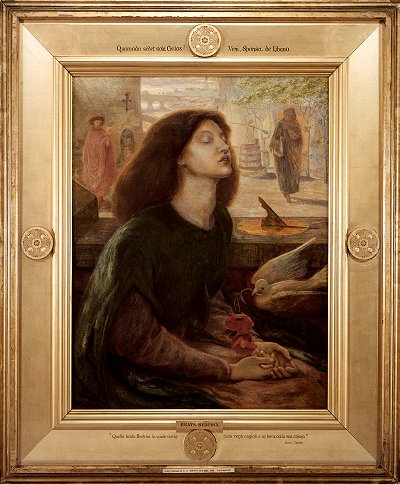
The Gloom that Breathes Upon Me
The gloom that breathes upon me with these airs
Is like the drops which stike the traveller’s brow
Who knows not, darkling, if they bring him now
Fresh storm, or be old rain the covert bears.
Ah! bodes this hour some harvest of new tares,
Or hath but memory of the day whose plough
Sowed hunger once, — the night at length when thou,
O prayer found vain, didst fall from out my prayers?
How prickly were the growths which yet how smooth,
Along the hedgerows of this journey shed,
Lie by Time’s grace till night and sleep may soothe!
Even as the thisteldown from pathsides dead
Gleaned by a girl in autumns of her youth,
Which one new year makes soft her marriage-bed.
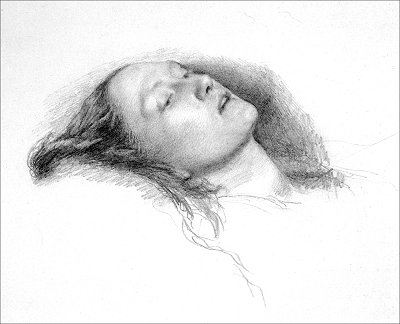
The Ballad of Dead Ladies
Tell me now in what hidden way is
Lady Flora the lovely Roman?
Where’s Hipparchia, and where is Thais,
Neither of them the fairer woman?
Where is Echo, beheld of no man,
Only heard on river and mere–
She whose beauty was more than human?–
But where are the snows of yester-year?
Where’s Heloise, the learned nun,
For whose sake Abeillard, I ween,
Lost manhood and put priesthood on?
(From Love he won such dule and teen!)
And where, I pray you, is the Queen
Who willed that Buridan should steer
Sewed in a sack’s mouth down the Seine?–
But where are the snows of yester-year?
White Queen Blanche, like a queen of lilies,
With a voice like any mermaiden–
Bertha Broadfoot, Beatrice, Alice,
And Ermengarde the lady of Maine–
And that good Joan whom Englishmen
At Rouen doomed and burned her there–
Mother of God, where are they then?–
But where are the snows of yester-year?
Nay, never ask this week, fair lord,
Where they are gone, nor yet this year,
Except with this for an overword–
But where are the snows of yester-year?
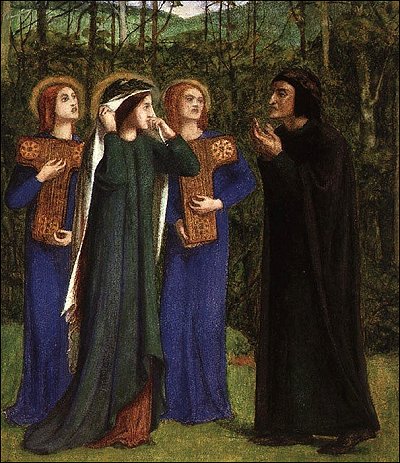
Life-In-Love
| Not in thy body is thy life at all But in this lady’s lips and hands and eyes; Through these she yields thee life that vivifies What else were sorrow’s servant and death’s thrall. Look on thyself without her, and recall The waste remembrance and forlorn surmise That liv’d but in a dead-drawn breath of sighs O’er vanish’d hours and hours eventual.Even so much life hath the poor tress of hair Which, stor’d apart, is all love hath to show For heart-beats and for fire-heats long ago; Even so much life endures unknown, even where, ‘Mid change the changeless night environeth, Lies all that golden hair undimm’d in death. |
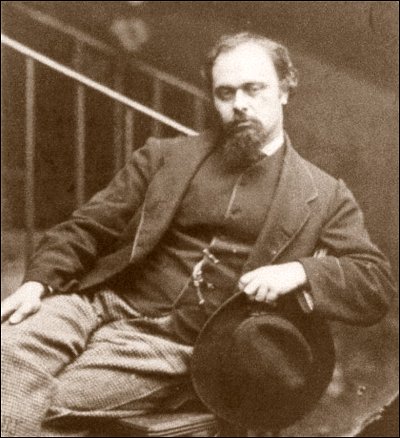
Dante Gabriel Rossetti: Seven Poems
fleursdumal.nl magazine
More in: Rossetti, Dante Gabriel
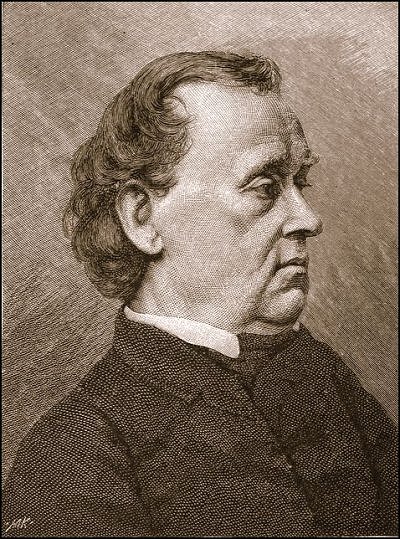
E d u a r d M ö r i k e
(1804-1875)
Das Verlassene Mägdlein
Früh, wann die Hähne krähn,
Eh’ die Sternlein verschwinden,
Muß ich am Herde stehn,
Muß Feuer zünden.
Schön ist der Flammen Schein,
Es springen die Funken;
Ich schaue so drein,
In Leid versunken.
Plötzlich da kommt es mir,
Treuloser Knabe,
Daß ich die Nacht von dir
Geträumet habe.
Träne auf Träne dann
Stürzet hernieder:
So kommt der Tag heran–
O ging’ er wieder!
Poem of the week – November 23, 2008
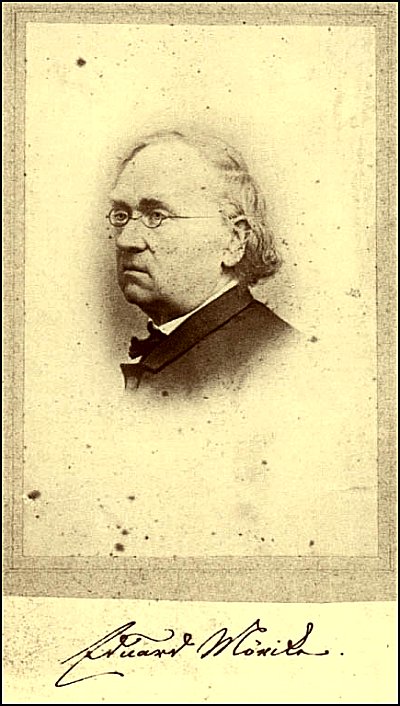
kemp=mag poetry magazine
More in: Archive M-N
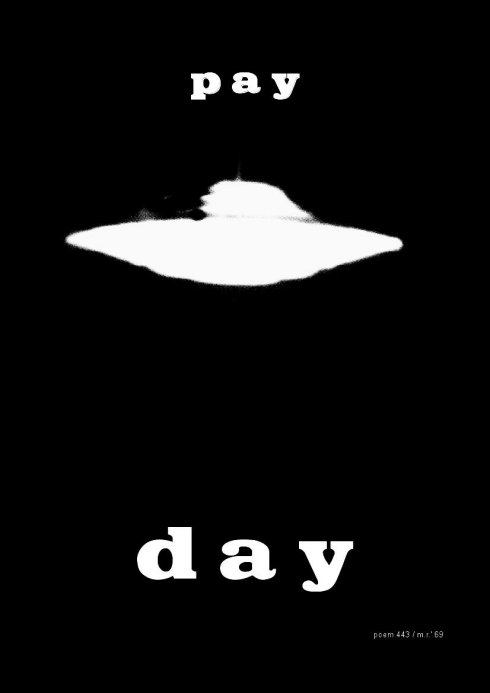
Monica Richter
Poem 443 / 1969
kemp=mag poetry magazine
More in: Monica Richter, Richter, Monica
.jpg)
G U I D O G E Z E L L E
(1830-1899)
O! ‘t ruischen van het ranke riet!
O! ‘t ruischen van het ranke riet!
o wist ik toch uw droevig lied!
wanneer de wind voorbij u voert
en buigend uwe halmen roert,
gij buigt, ootmoedig nijgend, neer,
staat op en buigt ootmoedig weêr,
en zingt al buigen ‘t droevig lied,
dat ik beminne, o ranke riet!
O! ‘t ruischen van het ranke riet!
hoe dikwijls dikwijls zat ik niet
nabij den stillen waterboord,
alleen en van geen mensch gestoord,
en lonkte ‘t rimpelend water na,
en sloeg uw zwakke stafjes ga,
en luisterde op het lieve lied,
dat gij mij zongt, o ruischend riet!
O! ‘t ruischen van het ranke riet!
hoe menig mensch aanschouwt u niet
en hoort uw’ zingend’ harmonij,
doch luistert niet en gaat voorbij!
voorbij alwaar hem ‘t herte jaagt,
voorbij waar klinkend goud hem plaagt;
maar uw geluid verstaat hij niet,
o mijn beminde ruischend riet!
Nochtans, o ruischend ranke riet,
uw stem is zo verachtelijk niet!
God schiep den stroom, God schiep uw stam,
God zeide: "Waait!…" en ‘t windtje kwam,
en ‘t windtje woei, en wabberde om
uw stam, die op en neder klom!
God luisterde… en uw droevig lied
behaagde God, o ruischend riet!
O neen toch, ranke ruischend riet,
mijn ziel misacht uw tale niet;
mijn ziel, die van den zelven God
‘t gevoel ontving, op zijn gebod,
‘t gevoel, dat uw geruisch verstaat,
wanneer gij op en neder gaat:
o neen, o neen toch, ranke riet,
mijn ziel misacht uw tale niet!
O! ‘t ruischen van het ranke riet
weergalleme in mijn droevig lied,
en klagend kome ‘t voor uw voet,
Gij, die ons beiden leven doet!
o Gij, die zelf de kranke taal
bemint van enen rieten staal,
verwerp toch ook mijn klachte niet:
ik! arme, kranke, klagend riet!
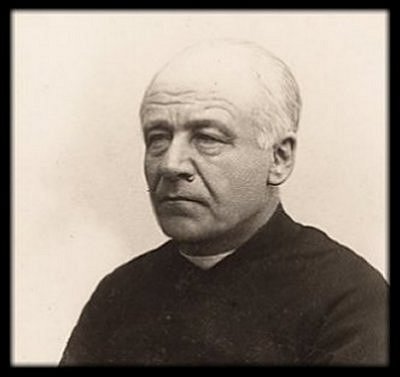
Het Schrijverke
(Gyrinus Natans)
O Krinklende winklende waterding
met ‘t zwarte kabotseken aan,
wat zien ik toch geren uw kopke flink
al schrijven op ‘t waterke gaan!
Gij leeft en gij roert en gij loopt zo snel,
al zie ‘k u noch arrem noch been;
gij wendt en gij weet uwen weg zo wel,
al zie ‘k u geen ooge, geen één.
Wat waart, of wat zijt, of wat zult gij zijn?
Verklaar het en zeg het mij, toe!
Wat zijt gij toch, blinkende knopke fijn,
dat nimmer van schrijven zijt moe?
Gij loopt over ‘t spegelend water klaar,
en ‘t water niet meer en verroert
dan of het een gladdige windtje waar,
dat stille over ‘t waterke voert.
o Schrijverkes, schrijverkes, zegt mij dan, –
met twintigen zijt gij en meer,
en is er geen een die ‘t mij zeggen kan: –
Wat schrijft en wat schrijft gij zo zeer?
Gij schrijft, en ‘t en staat in het water niet,
gij schrijft, en ‘t is uit en ‘t is weg;
geen christen en weet er wat dat bediedt:
och, schrijverke, zeg het mij, zeg!
Zijn ‘t visselkes daar ge van schrijven moet?
Zijn ‘t kruidekes daar ge van schrijft?
Zijn ‘t keikes of bladtjes of blomkes zoet,
of ‘t water, waarop dat ge drijft?
Zijn ‘t vogelkes, kwietlende klachtgepiep,
of is ‘et het blauwe gewelf,
dat onder en boven u blinkt, zoo diep,
of is het u, schrijverken zelf?
En t krinklende winklende waterding,
met ‘t zwarte kapoteken aan,
het stelde en het rechtte zijne oorkes flink,
en ‘t bleef daar een stondeke staan:
"Wij schrijven," zoo sprak het, "al krinklen af
het gene onze Meester, weleer,
ons makend en leerend, te schrijven gaf,
één lesse, niet min nochte meer;
wij schrijven, en kunt gij die lesse toch
niet lezen, en zijt gij zo bot?
Wij schrijven, herschrijven en schrijven nog,
den heiligen Name van God!"
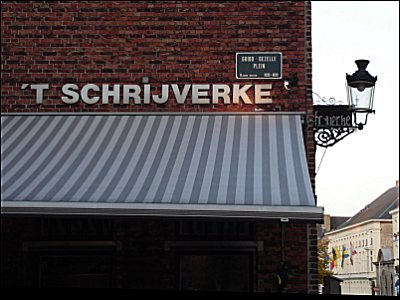
Abeelen
Verschgevelde abeelenboomen
liggen kangs de grachten heen,
die den ouden zandweg zoomen,
hoofd en armen afgesneên.
Sterke stammen, kon dat wezen,
gij, die, op en in den grond,
met uw’ voeten vastgevezen,
vamen diep, ondelgbaar, stondt?
Gij, die ‘t zwaar geweld der winden,
kreunende, op uw kruinen droegt;
die zoo lang den boosgezinden
wintervijand wedersloegt?
‘t Edel hoofd intweengespleten,
knoken in den grond geboord,
wie heeft ‘t al u afgebeten,
dat uw’ schoonheid toebehoort?
Spillen zie ‘k, en spanen, dragen;
splenters, uit uw hoofdgewaai;
takken uit uw’ toppen zagen,
kerven af uw’ teenen taai!
Elk komt uit en wondt en snijdt u;
raapt en rooft, met volle hand;
nu dat, omme’ en verre en wijd, uw
hooge kroone ligt in ‘t zand.
Vijandschap, aan alle zijden,
woedt om uwe ellendigheid:
heeft u ooit, in vroeger’ tijden,
vrede en vriendschap één ontzeid?
Edel volk, wanneer gij wachttet,
langs den weg, en schaduw smeet
op die, moegegaan, versmachtte ‘t
zonnevier, was ‘t iemand leed?
Iemand leed! Ach, laat mij weten
wie dat ‘t is, die, afgemat,
heeft ondankbaar neêrgezeten,
in de schaduw! Leert mij dat!
Meermaals mocht ik asem halen,
vluchten onder ‘t groene dak,
als het zweerd der zonnestralen
scherp mij in de lenden stak.
Boomen, in uw’ looverlane,
tellende, een voor een, u al,
‘s zomers, zoete abeelenbane,
zelden ik nog komen zal!
‘t Deert mij zoo! – De abeelenboomen
liggen langs de grachten heen,
die den ouden zandweg zoomen,
hals en handen afgesneên!
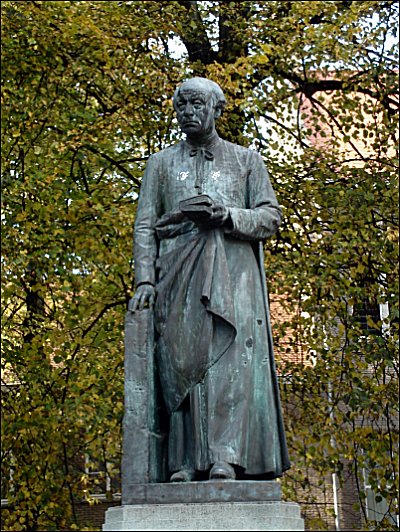
Guido Gezelle: Drie gedichten
kemp=mag poetry magazine
More in: Gezelle, Guido
Thank you for reading Fleurs du Mal - magazine for art & literature